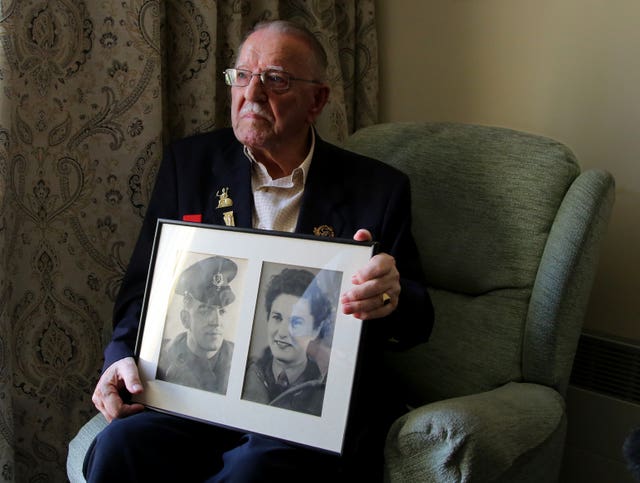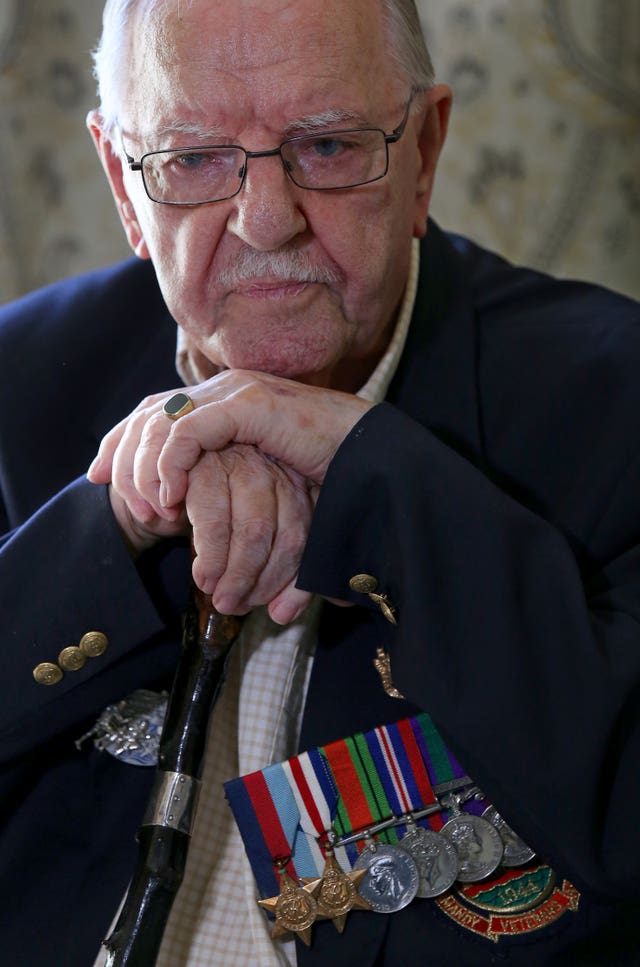D-Day veteran: We were told to run as fast as we can
Charles Boyer lied about his age in order to sign up.

A 93-year-old veteran who lied about his age in order to sign up has recalled how soldiers were told to run for their lives when they landed on the beaches during D-Day.
Lewis Boyer, known as Charles, is listed as 94 on military records because he added a year on to his age as a youngster to fool officials.
After signing up in 1942, he joined the Royal Norfolk Regiment and soon found himself training for Operation Overlord.
Growing up in Spalding, Lincolnshire, he and a group of school friends were inspired to visit a recruiting office in Grantham.
Mr Boyer said: “Five of us altogether from school, we thought we would join up.
“We put a year on our age, no questions asked. Just sign on the dotted line.
“When I joined up, I was 16 years and 11 months but according to the army I was 17 years and 11 months.”
He was put in the assault division, training in barracks in Norwich before being sent to Scotland to carry out training for D-Day where they practised landing the boats where they were warned there could be 70% casualties, he said.

“All we could see was beach and hill. All we were told was ‘run’. Just run across the beach as fast as you can.
“We thought we were going to swim ashore but the water was only knee high. We had to throw some of our kit away. Some of them even threw bikes away.
“We were quite happy to get on with the job, no problem.”
He said troops were spurred on by the rousing pre-D-Day message sent down by General Bernard Law Montgomery, the commander-in-chief of the 21 Army Group – which he still keeps a copy of.
Dated June 5 1944 and referring to the “great adventure”, the message reads: “The time has come to deal the enemy a terrible blow in Western Europe.
“To us is given the honour of striking a blow for freedom which will live in history; and in the better days that lie ahead men will speak with pride of our doings.

“I want every soldier to know that I have complete confidence in the successful outcome of the operations that we are now about to begin.
“With stout hearts, and with enthusiasm for the contest, let us go forward to victory.”
Mr Boyer said: “It was the biggest operation undertaken and in the end it was successful.
“I feel very proud being involved.
“For six weeks we were this side of Caen and we really potted away at each other.
“Then the break came through, the whole lot opened up and we raced into Belgium and Holland.”
During this time he witnessed the German surrender at Luneburg in May 1945 and was later awarded the Legion d’Honneur for his efforts.
But he was later removed from frontline duty after being knocked unconscious by a flamethrower in Holland, injuring his leg.
While recovering in a field hospital, officials came to seek volunteers for the Royal Military Police. Mr Boyer decided to sign up because “he liked the uniform”.
He said: “I was made a sergeant within seven months of joining the military police and I was the youngest sergeant in the whole of the military police – I think it was because I could read and write.”
During his 24 years with them, he provided security at the Nuremberg trials, assisted with patrols while well-known executioner Albert Pierrepoint fixed his nooses and was present at the hanging of Nazi concentration camp commander Josef Kramer.

The great-grandfather moved into the Royal British Legion Industries (RBLI) village last year in Aylesford, Kent, after his wife died.
He will spend the 75th anniversary of D-Day at a reunion of veterans in Folkestone where a 6ft high stone from Normandy will be commemorated during a service before a lunch reception.
The RBLI charity – which is separate from the Royal British Legion – provides accommodation and support to veterans of the British Armed Forces.
Mr Boyer said: “It’s safe, secure. Everyone is very friendly. Very comfortable. I feel looked after.”
As it celebrates its centenary this year, the charity has launched a £14 million development project and building a new wing of assisted living accommodation as well as community centre with gym, activities and support.
RBLI chief executive Steve Sherry said: “As we mark our own centenary this year, we know it’s important to look back and learn lessons to look forward. That is what we draw from Charles and his memories of D-Day.
“He is living his life independently and here he has support when he needs it.
“With our appeal we want to improve the RBLI village and hopefully provide support for the next 100 years.”





